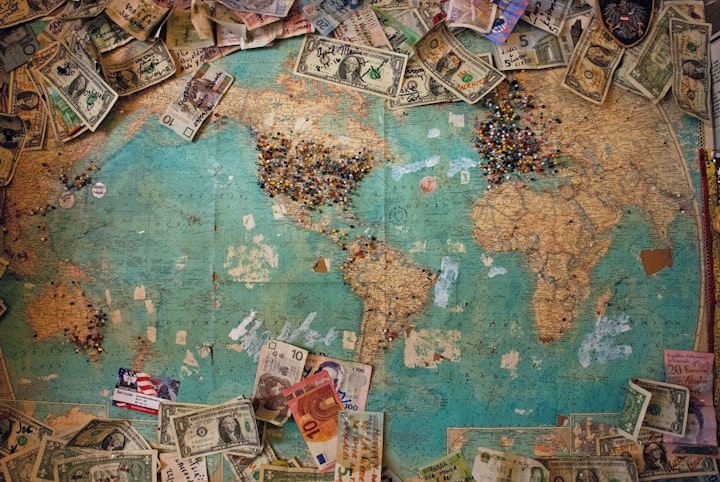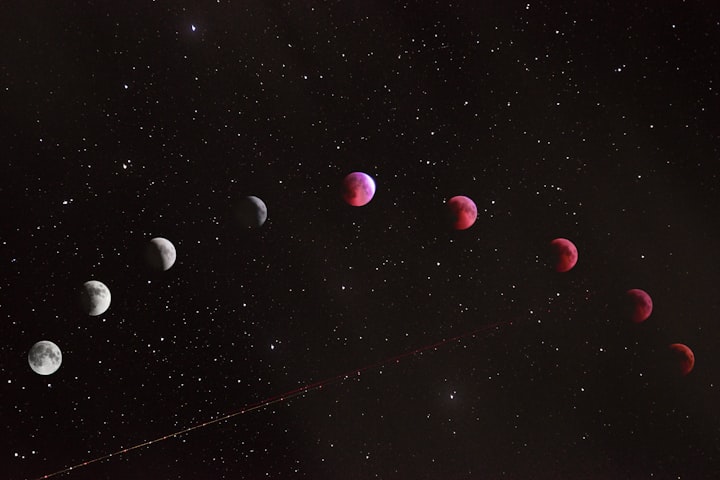The Game-Changers: 9 Things That Changed the World Forever
From the Printing Press to Climate Change, How Historical Shifts Shaped Our Modern World

The world is constantly changing, and there have been many events and inventions throughout history that have had a profound impact on society. From technological advancements to political movements, these changes have altered the course of history and shaped the world we live in today. In this essay, I will explore some of the most significant things that changed the world and discuss their impact on society.
1. The Printing Press
The invention of the printing press by Johannes Gutenberg in the mid-15th century was a pivotal moment in human history. The printing press revolutionized the way information was disseminated and made it possible to produce books, pamphlets, and other printed materials on a mass scale. Prior to the printing press, books had to be copied by hand, which was a slow and laborious process. With the printing press, books could be produced quickly and cheaply, making knowledge more widely available.
The printing press played a key role in the spread of the Renaissance and the Reformation, as it allowed for the widespread dissemination of new ideas and scientific discoveries. It also played a crucial role in the development of the modern newspaper and helped to democratize access to information.
2. The Industrial Revolution
The Industrial Revolution, which began in the late 18th century in Britain, marked a profound shift in the way goods were produced. It was characterized by the introduction of new manufacturing processes, the use of steam power, and the mechanization of production. The Industrial Revolution transformed the way goods were produced and led to significant increases in productivity and economic growth.
The Industrial Revolution had a profound impact on society, transforming the way people lived and worked. It led to the growth of urban centers and the rise of the middle class. It also led to significant improvements in transportation and communication, which helped to fuel further economic growth.
3. The World Wars
The two World Wars of the 20th century had a profound impact on the world. The First World War, which began in 1914 and lasted until 1918, was one of the deadliest conflicts in history. It led to the collapse of empires and the redrawing of national boundaries. The Second World War, which began in 1939 and lasted until 1945, was even more devastating, with an estimated 70 million deaths.
The World Wars had a profound impact on the world, reshaping political alliances and leading to the rise of new superpowers. They also led to significant advancements in technology, such as the development of the atomic bomb. The World Wars also played a key role in the rise of the United States as a global superpower, as it emerged from the wars relatively unscathed and became a leader in technology, science, and culture.
4. The Internet
The Internet, which was first developed in the late 1960s, has had a profound impact on the world. It has transformed the way people communicate and access information and has led to significant changes in business and politics.
The Internet has made it possible to connect with people around the world, allowing for the rapid spread of information and ideas. It has also made it possible to conduct business on a global scale, creating new opportunities for trade and commerce. The Internet has also played a key role in the rise of social media, which has transformed the way people interact and share information.
5. The Civil Rights Movement
The Civil Rights Movement, which began in the 1950s and 1960s, was a social and political movement aimed at ending racial discrimination and promoting equal rights for all people. It was characterized by nonviolent protests and civil disobedience and led to significant changes in the law and in social attitudes.
The Civil Rights Movement had a profound impact on American society, helping to end segregation and promote racial equality. It also inspired similar movements around the world, such as the anti-apartheid movement in South Africa. The Civil Rights Movement paved the way for future social justice movements, such as the feminist movement and the LGBTQ+ rights movement.
6. The Green Revolution
The Green Revolution, which began in the mid-20th century, was a series of technological advancements in agriculture that helped to significantly increase global food production. It was characterized by the use of high-yielding crop varieties, irrigation systems, and fertilizers, among other techniques.
The Green Revolution had a significant impact on global food security, helping to alleviate hunger and malnutrition in many parts of the world. However, it also had negative impacts on the environment, such as soil erosion and water depletion, and raised concerns about the sustainability of modern agriculture.
7. The Fall of the Berlin Wall
The fall of the Berlin Wall in 1989 marked the end of the Cold War and the beginning of a new era in international relations. The Berlin Wall had been a symbol of the divide between the communist East and the capitalist West, and its fall represented a significant shift in global politics.
The fall of the Berlin Wall led to the reunification of Germany and the end of the Soviet Union and paved the way for the expansion of democracy and capitalism around the world. It also led to the emergence of new geopolitical challenges, such as the rise of China as a global superpower.
8. The Human Genome Project
The Human Genome Project, which began in the 1990s, was a collaborative international effort to map the entire human genome. It involved the sequencing of billions of DNA base pairs and led to significant advancements in the field of genetics.
The Human Genome Project has had a profound impact on medicine and biology, helping to identify the genetic basis of many diseases and leading to the development of new treatments and therapies. It has also raised ethical concerns about the use of genetic information and the potential for discrimination based on genetic traits.
9. Climate Change
Climate change, which is caused by human activities such as burning fossil fuels and deforestation, is one of the most pressing issues facing the world today. It has led to rising sea levels, extreme weather events, and other environmental problems, and poses a significant threat to human well-being and biodiversity.
Climate change has led to significant changes in global politics and economics, as countries and businesses grapple with the need to reduce greenhouse gas emissions and transition to a more sustainable economy. It has also led to the rise of new social movements, such as the youth-led climate strikes, and has raised important ethical questions about our responsibility to future generations and other species.
Conclusion
Throughout history, there have been many things that changed the world, from the printing press to climate change. These changes have had a profound impact on society, transforming the way we live, work, and interact with each other and the environment. As we continue to navigate the challenges of the 21st century, it is important to reflect on the lessons of the past and work towards a more just, equitable, and sustainable future.
About the Creator
The Truth Speaks
The Truth Speaks is a compassionate and empathetic individual who seeks to understand and support others in their journey towards living a more authentic life.






Comments
There are no comments for this story
Be the first to respond and start the conversation.